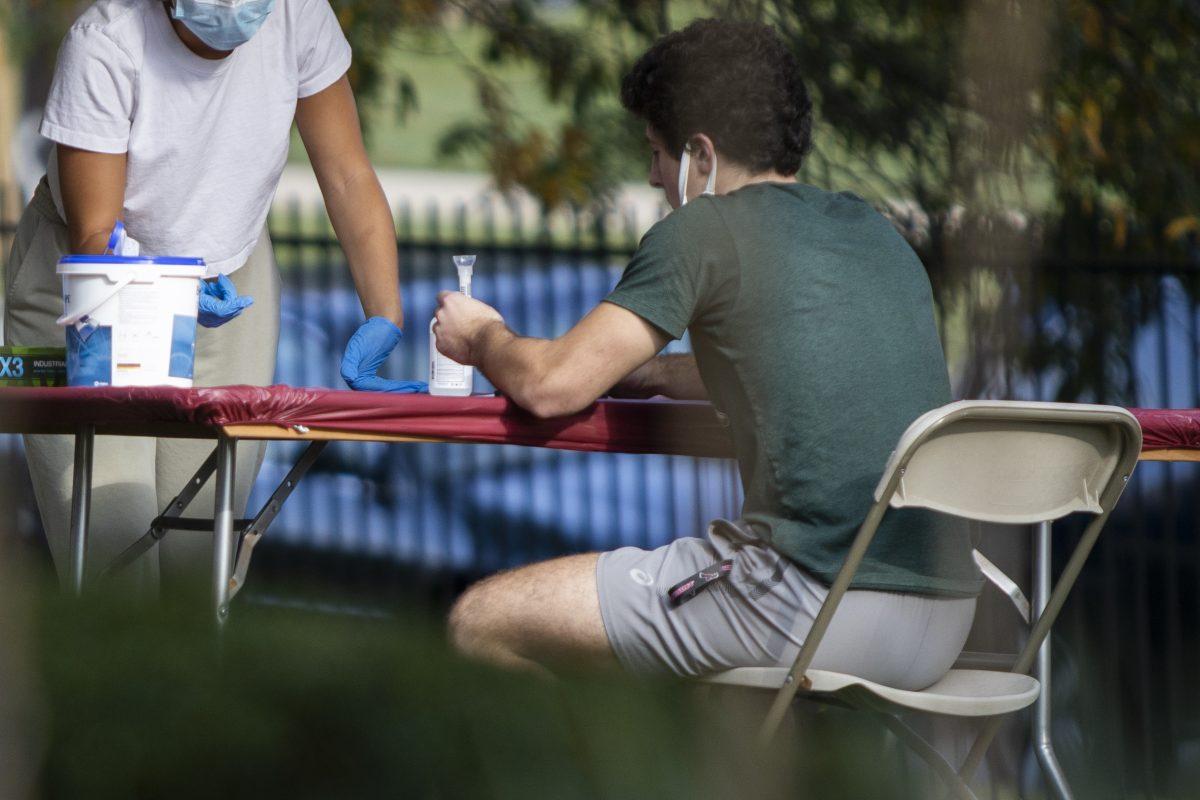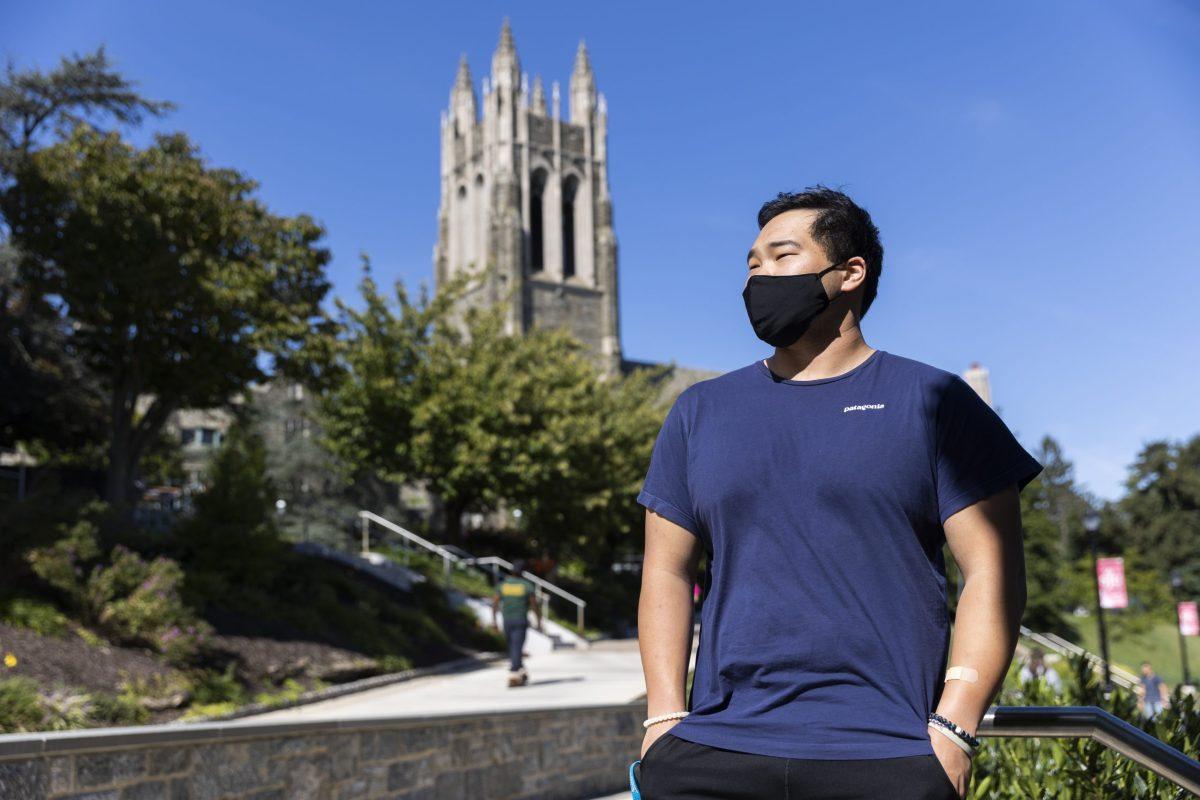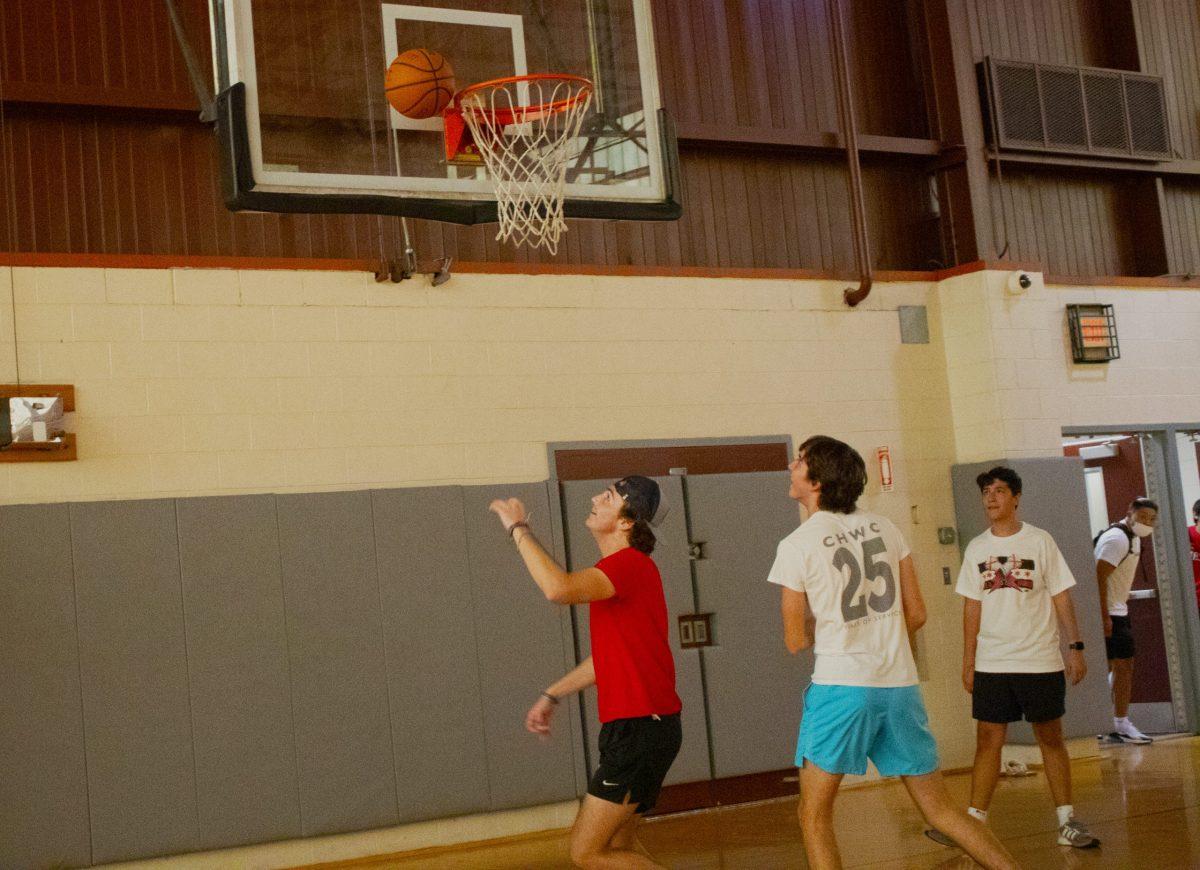St. Joe’s has begun conducting mandatory surveillance testing to more closely monitor coronavirus cases among residential students after an increase in transmission on campus, according to a Sept. 22 university announcement.
Surveillance testing is the process of randomly selecting members of a specific population to be tested for COVID-19 in order to closely monitor the patterns of coronavirus cases among populations where there is high transmission. According to the university announcement, St. Joe’s began surveillance testing on Sept. 27 for only students living on campus, as on-campus students currently make up “the greatest number of positive cases.”
The COVID-19 Dashboard lists 155 cumulative coronavirus cases as of Sept. 27, with 103 of those cases being residential students.
University Student Senate (USS) President, Jillian Garvey ’21, said it’s smart to begin testing residential students given the number of cases within that population. But, the university should be ready to adjust procedures as the semester progresses.
“I can’t say how accurate our reported positive case numbers are,” Garvey said. “It’s a lot easier for a nonresidential student to get tested at a third party location and not disclose their results with the university. In the coming weeks, [the university] should be planning on expanding testing to nonresidential students as well.”
In an email to The Hawk, Cary Anderson, Ed.D., associate provost and vice president of Student Life, wrote that surveillance testing will continue throughout the semester, and will expand to nonresidential students, employees and affiliates “if needed.” Select groups will be asked to be tested, Anderson said, “if it will assist with containment efforts and there is a public health benefit to doing so.”
Other Pennsylvania universities are conducting surveillance testing, including Pennsylvania State University, which began testing on Aug. 21, and Villanova University, which began on Sept. 7.
In the first week of testing, 250 residential students were selected to be tested, according to Anderson.
“For residential students, one student from each room/unit was randomly selected,” Anderson wrote. “Each of these students will be tested over the next few weeks.”
Globally, expanded testing reveals more positive cases, according to USAToday. An increase in cases on campus is a possibility, but the university will continue the protocol for positive cases that is currently in place, Anderson wrote.
“We anticipate the possibility of detecting new cases,” Anderson said. “We will continue our contact tracing protocols, which includes isolating those who are symptomatic or receive a positive test and quarantining the close contacts of those individuals.”
Judith O’Donnell, director of the Department of Infection Prevention and Control at Penn Presbyterian Medical Center, said that many college-aged people are asymptomatic carriers of COVID-19, which makes asymptomatic testing all the more necessary and effective.
“You have a higher rate in your age group of being asymptomatic but having infection,” O’Donnell said. “So by testing across a population, you have a better chance to identify those asymptomatic individuals who may be spreading disease. If you’re testing regularly, then you may be able to more quickly prevent the further spread of the disease by identifying these asymptomatic individuals, quarantining them and preventing them from spreading it further.”
Garvey said even with the potential of more positive cases being revealed through surveillance testing, the university does not plan on going completely online until after Thanksgiving, unless otherwise prompted by the city of Philadelphia or the state of Pennsylvania.
“From what I’ve been hearing, we will not be going online, regardless of how many positive cases we get,” Garvey said. “If the surveillance testing drastically increases our numbers, that just means [the university] might have to rent out more quarantine spaces at the Hilton [Homewood Suites] if [they] can’t contain the spread through use of Sourin or Moore.”
The Center for Disease Control and Prevention (CDC) updated its guidelines on Sept. 18 regarding who should be tested, clarifying that “due to the significance of asymptomatic and pre-symptomatic transmission, this guidance further reinforces the need to test asymptomatic persons.”
University President Mark C. Reed, Ed.D., wrote in a Sept. 22 university announcement that implementing surveillance testing is out of an abundance of caution for public health.
“It is important to understand that this testing exceeds current public health guidance and that we have opted to take these extra precautionary steps,” Reed wrote.
Tony O’Shea ’22 said the procedure for the surveillance testing resembled campus-arrival testing that students completed the first week of classes. O’Shea was tested on Sept. 27 at the Wynne Hall of Fame Patio between Michael J. Hagan Arena ’85 and Barry Hall, where all surveillance testing will be conducted.
“There was a line of maybe four to five people with eight tables,” O’Shea said. “It was moving pretty efficiently, and they had it down to move fast. I was in and out in maybe 20 minutes from when I got there.”

PHOTO: MITCHELL SHIELDS ’22/THE HAWK
Garvey said implementing asymptomatic testing was brought up to Anderson in a previous USS meeting.
“[USS] didn’t have too much of a say besides simply bringing it to [Anderson’s], and thereby the administration’s attention, that we think this should be something we do,” Garvey said. “We were told the university was working to get surveillance testing set up, but they were working through issues of how to get people to comply.”
When asked how the university is addressing those who don’t adhere to the testing mandate, Anderson said noncompliance is documented.
“If someone repeatedly puts our community at risk through a variety of actions (not wearing a mask, not physically distancing, non-compliance with testing requests) it may result in disciplinary action,” Anderson wrote. “Each individual’s behavior will be evaluated holistically.”
Anderson added that a refusal to take part in the surveillance testing will be counted as a violation of the iCare Pledge and may be referred to the Community Standards Board.
“I hope that students will uphold the iCARE pledge and seriously consider the impact of their actions – on themselves and others,” Anderson wrote.
Anyone experiencing symptoms of coronavirus, who has received a positive test or who has been exposed to someone with COVID-19, must fill out the Self-Disclosure Form.










































